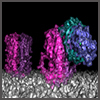 
Dental plaque, the sludge in hot springs and black slime inside of toilets are all examples of biofilms, made of slick communities of bacteria that also play roles in many diseases... more »
|
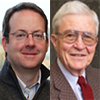 
The American Chemical Society will honor Cornell chemists Geoffrey Coates and Fred McLafferty with national prizes at a March 24 ceremony during the ACS meeting in Denver. Coates invented new catalysts for the synthesis of macromolecules and small molecules. McLafferty extended chemical and spectroscopic methods to study important biological phenomena... more »
|
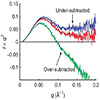 
BioSAXS experiments require careful preparation. Many users (even though they may be experienced crystallographers) are new to the technique, and MacCHESS' Richard Gillilan and Alvin Acerbo spend a great deal of time "holding hands" with biologists using the BioSAXS facility for the first time... more »
|
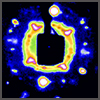 
Modern crystallography can be tracked back to Max Laue who conceived the first diffraction of x-ray by a crystal lattice in 1913. Upon public release of the Laue pattern collected from several crystals, Albert Einstein immediately labeled this work as one of the most beautiful experiments in physics... more »
|
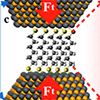 
The research work published in the August issue of Nano Letters report the development of the world's smallest anvil pressure cell, which offers a new experimental platform for investigating the elastic behavior of molecular bundles embedded at nanocrystal interfaces of nanocomposites... more »
|
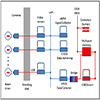 
The X-ray beam position stability is one basic requirement to get high quality experimental results. Long duration (tens of minutes to hours) X-ray beam position shifts have been present due to warm-ups after beam interruptions and as a result of changes due to the temperature shift... more »
|
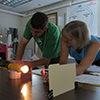 
In July, twenty public school teachers visited the eXploration Station as a part of the Summer Science Snapshot for Educators program. Over the course of three days, the teachers participated in a variety of lessons and activities geared towards basic engineering, problem solving and scientific thinking... more »
|








